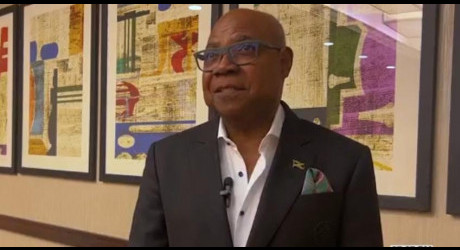.png)
00:00
00:00
00:00
A report from Racquel Porter
A new Republican proposal in the United States Congress is sparking international concern and backlash after House Republicans included a 5 per cent excise tax on remittance transfers in a key legislative package backed by President Donald Trump.
The tax would affect more than 40 million people, including green card holders and non-immigrant visa holders such as those on H1B, H2A and H2B visas.
US citizens would be exempt from the proposed tax.
Jamaica, like many Caribbean nations, is among the countries heavily dependent on remittance inflows.
Jamaica recorded $3.36 billion in annual remittance inflows in 2024; two-thirds of Jamaica's remittances originate from the US.
This move coincides with a recent announcement by Trump, who said he is finalising a presidential memorandum aimed at shutting down remittance transfers by people living in the US illegally.
The White House Treasury Department have not released details on how the policy would be enforced or what mechanisms would be used.
The proposed tax has already drawn criticism from Mexican President Claudia Sheinbaum, who has urged Republican lawmakers to reconsider the measure.
Experts on remittances and immigrant advocates argue that remittances offer a crucial economic lifeline supporting families, education, health care and small businesses in recipients' home countries.
Jamaican Economist Keenan Faulkner has painted a grim picture of the economic fallout the US proposed tax on remittance could have on Jamaican households that depend heavily on money from overseas to afford basic commodities.
In an interview with Radio Jamaica News on Friday morning, Mr. Faulkner shared concerns that such a tax, if implemented, would reduce spending power on daily purchases as well as health care and education expenses since some Jamaicans primarily rely on remittances.
"Additionally, with the imposition of the tariffs also likely to depress consumer spending in the US and which accounts for up to 70% of consumer spending in the US, disposable incomes are likely to fall, which then further compounds the potential fallout in sending remittances. In the long run, if this policy is maintained, it could also discourage Jamaican immigration to the US altogether for persons who are specifically looking to work for a short time with the intention of sending money back home," he reasoned.










 All feeds
All feeds







